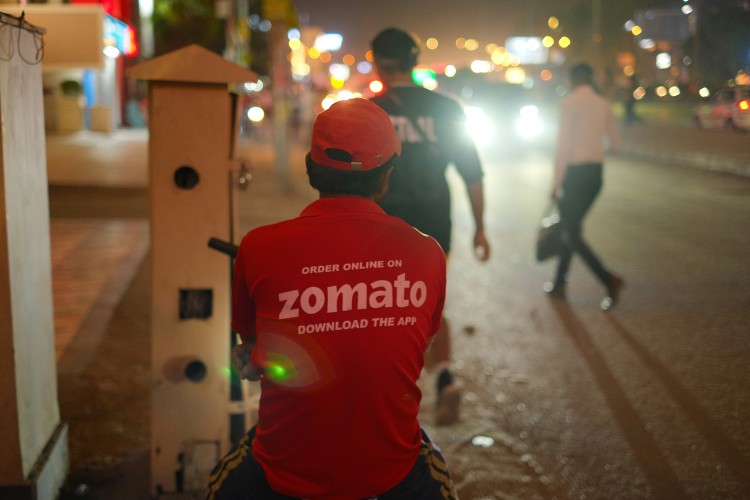
A national daily recently interviewed Pawan Kumar and Rohit Garg, gig workers whose grueling schedules in extreme temperatures led to health emergencies that they had to manage by themselves, with no support from the platform. Unfortunately, such events are not isolated: last year, Uber driver Priyanka Devi was attacked by assailants who slashed her neck and stole her belongings. She says the platform offered no assistance as she lay bleeding in her car. Sheikh Ismail, a grocery delivery agent, was injured by a kite string during a trip and spent his personal funds for treatment.
Such events constitute necrocapitalism, an economic order where employers drive vulnerable employees to ill health or death for pecuniary gain. Algorithms embedded into the platform control workers’ time, physical person, and life, devaluing their individuality, and converting them into expendable labor. Mobile phone technology makes algorithmic surveillance so nuanced it is impossible to know exactly what is being measured and when: apps may measure confidential data, including heart rate, often without the workers’ knowledge or consent. Collecting real-time data simplifies the algorithm’s task of pushing workers to their physical limits. Gig workers relying on platforms for their livelihoods thus become a ‘necropolitical workforce’ – those who work at the cost of their lives.
READ | Female representation in politics a story of missed opportunities
Freedom vs manipulation in gig economy
The irony is that workers sign up to gig platforms with the intention of controlling their schedule and income. Platforms typically attract unemployed or underemployed youth looking for a side-hustle at their pace. However, after a few trips down this rabbit hole, workers realise that algorithms deploy rewards and punishments to nudge them towards longer working hours aligned with the platform’s profitability targets. It is designed to make workers put in long hours while impressing upon them that it is their choice. Workers like Pawan and Rohit fill up their days with seemingly profitable work while passively accepting the risk of health breakdowns, accidents, or death. Scholars call this the ‘autonomy paradox.’
Penalties for non-compliance with algorithmic rules include abrupt deactivation of worker IDs and a ban from the app altogether. A University of Pennsylvania study finds that 83% of Indian drivers using ride-hailing apps experience negative impacts of sudden deactivation, including loss of income and lengthy legal battles for reactivation. This financial stress is in addition to the emotional trauma associated with unpredictable work schedules each day, not knowing how many extra jobs to take on to make ends meet while managing personal responsibilities like childcare or elder care.
Gig workers in India
The magnitude of the problem is clear when we recognise that India currently has between 8 and 18 million gig workers, and that the number is expected to rise to 90 million in a decade. These workers lack distinct professional identity under our labor codes, depriving them of foundational benefits like minimum wage, health insurance, and paid leave. Piece-rate work offers little pay and few fringe benefits, so workers often take on more work than they can handle. When delivering people or groceries on tight deadlines, accidents are likely.
Respiratory infections may occur from prolonged dust exposure. Apart from physical risks, studies show that long work hours increase loneliness and emotional oscillation. Yet workers are forced to accept these health risks while the platform takes no accountability for algorithmically manipulating workers’ lives.
Gig platforms benefit from declassifying gig workers; otherwise, they may have to offer benefits and entitlements that increase operating costs. Platforms argue that gig workers must be classified as contractors who bring their own tools – vehicles or skills – to work. However, the catch is that contractors are also eligible for some employment benefits under our labor laws, and contracting amounts to goodwill and work experience one can document on a CV. However, gig workers lose on both fronts. Short durations of work mean they build no client relationships. Companies do not offer credit for time spent on gig work as it is viewed as an alternative to unemployment.
The Australian government implemented the Fair Work Legislation Amendment (Closing Loopholes) Act in 2023, empowering the Fair Work Commission to set minimum wages for gig workers. Gig workers or collectives may approach the commission to resolve disputes around payments, deductions, or deactivation. Indian policymakers are well-advised to refer to such legislation as starting points to devise policy frameworks for fair work and wage conditions in India.
It is time our policymakers passed legislation to ensure safe and hygienic working conditions, along with fundamental benefits that enrich the job quality of gig workers. Creating fair working conditions is far from a mere gesture of altruism or goodwill; it makes sound business sense. Physically or mentally unhealthy gig workers increase our unemployment headcount; studies indicate that a 1% increase in unemployment could drop national GDP by 2%. Additionally, the lack of health insurance for gig workers may increase our public healthcare burden as increasing numbers of gig workers and their families rely on government resources for healthcare.
(Anjana Karumathil is Associate Professor of Practice at IIM Kozhikode.)
